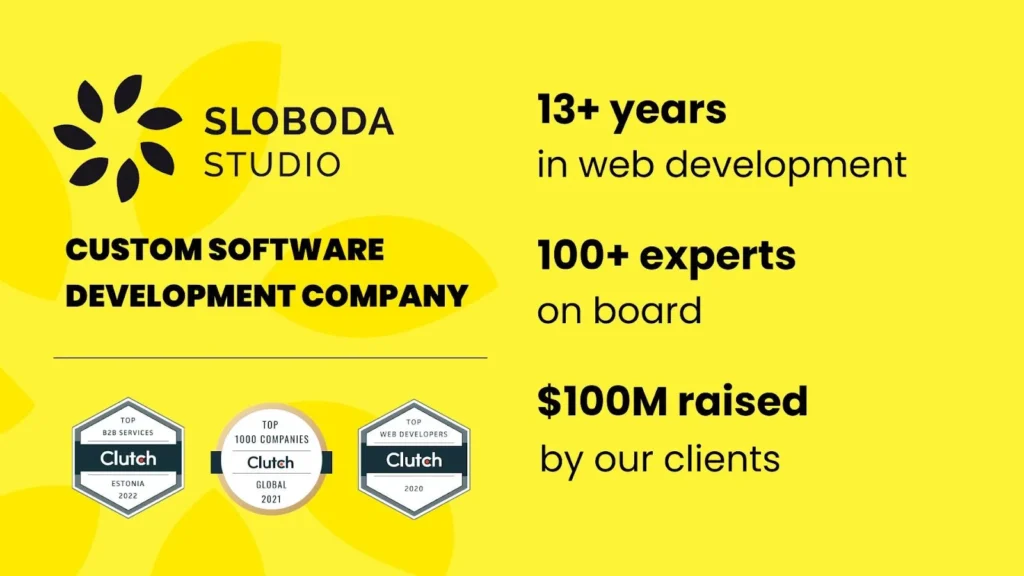In today’s digital era, Ruby on Rails web development services play a crucial role as building a robust and efficient web application goes beyond being a trendy endeavor to a vital necessity. The vastness of the web demands platforms and frameworks that are user-friendly, scalable, secure, and efficient. As businesses aim to serve an ever-expanding global audience, tools that enhance web development processes are paramount.
Ruby on Rails, often referred to as Rails, addresses these challenges, presenting developers and businesses with a sophisticated and intuitive ecosystem that’s both powerful and adaptable. Before delving deeper into Rails, it’s important to recognize its significance in the expansive realm of web development.
Exploring the World of Web Development
The digital domain’s vast expanse, encompassing everything from global e-commerce giants to personal blogs, has undergone a profound transformation over the past few decades. This metamorphosis can be largely attributed to the innovations and advancements in web development.
In today’s fiercely competitive marketplace, businesses, whether nascent startups or established conglomerates, are in a relentless race to establish a formidable online presence. The imperative to stand out has intensified, and simply having a functional website no longer suffices. It’s about delivering an unforgettable, immersive digital experience that captivates and retains users.
Choose Ruby on Rails. This web application framework has rapidly ascended the ranks to become one of the most sought-after tools in the developer’s arsenal. With its user-centric approach, developer-friendly environment, and robust architecture, Rails has distinguished itself in the crowded web development arena. So, what precisely makes Rails the go-to choice for so many?
Considering the capabilities of Ruby on Rails for your web development endeavors? Think about engaging with Sloboda Studio. With a rich history spanning 13 years in RoR development, they’ve carved niches in areas like real estate, e-commerce, finance, and beyond.
Their mastery ensures custom solutions fitting your business requirements perfectly. From crafting agile e-commerce systems to designing powerful financial apps, the adept Ruby on Rails professionals at Sloboda Studio combine technical expertise with innovative thinking to realize your digital aspirations.

Also Read: Best Front-End Web Development Tools
The Basics of Ruby on Rails
Understanding the Framework
Ruby on Rails, often affectionately known as Rails, stands as a testament to innovation in the domain of web application frameworks. Deeply rooted in the expressive and dynamic Ruby programming language, Rails introduces developers to an enriched, intuitive coding experience.
One of the core philosophies championed by Rails is its emphasis on “convention over configuration.” Instead of getting bogged down in the minutiae of manual setups, Rails automatically assumes many configurations based on established best practices.
This eliminates the need for developers to constantly redefine common parameters, saving them from the tedious cycle of repeated setups. This streamlined approach not only reduces the learning curve for newcomers but significantly cuts down on development time.
Such efficiency and foresight make Rails an indispensable tool, particularly in projects that employ agile methodologies or require rapid iterations and deployments.
Why Choose Ruby on Rails for Web Development?
The Rails ecosystem is rich and multifaceted. Beyond its expressive syntax, which is a pleasure to work with, Rails offers:
- Integrated Testing: With built-in testing frameworks, Rails emphasizes test-driven development, assuring robust applications.
- Active Record: Making database interactions smooth and intuitive, Active Record eliminates the need for verbose SQL.
- Rich Libraries and Middleware: RubyGems, an expansive package library, coupled with Rails middleware stack, facilitates rapid feature integration.
Getting Started with Ruby on Rails
Set Up Your Development Environment
Kickstarting a Rails journey entails:
- Ruby: This dynamic, object-oriented language is the bedrock of Rails.
- Rails: A gem installation away, setting up Rails is a breeze.
- Database: While SQLite is the out-of-the-box choice, Rails is versatile enough to accommodate PostgreSQL, MySQL, and others.
Build Your First Rails Application
Venturing into Rails development is akin to embarking on an artistic journey. Upon initiating your app, Rails lays out a structured directory, setting the stage for development. With pre-defined conventions and a strong emphasis on RESTful application design, Rails nudges developers towards best practices.
Ruby on Rails Features and Advantages

MVC Architecture
Rails champions the Model-View-Controller (MVC) architecture, an approach ensuring:
- Model: Data logic and rules.
- View: A polished, user-friendly interface.
- Controller: Efficient request routing and data flow.
MVC’s compartmentalized structure boosts clarity and scalability.
DRY (Don’t Repeat Yourself) Principle
Repetitive code isn’t just tedious; it’s a vulnerability. Rails champions the DRY principle, ensuring codebase remains streamlined and maintainable.
Must Read: Mobile Development Best Practices Checklist
Ruby on Rails Web Development Services
The Role of Web Development Services
A robust application demands a holistic view, blending coding expertise with strategic foresight. Web development services encompass this blend, offering an end-to-end solution, from ideation to deployment and maintenance.
Benefits of Leveraging Professional Services
A professional touch offers:
- Holistic Strategy: Aligning tech with business goals.
- Seamless Integration: Incorporating third-party services or legacy systems.
- Optimal Performance: Leveraging best practices for speedy, responsive apps.
Choosing the Right Ruby on Rails Development Partner
Factors to Consider
Beyond technical proficiency, gauge:
- Project Portfolio: Their past projects and success stories.
- Cost Efficiency: The balance between cost and value offered.
- Adaptability: Their prowess in assimilating new trends and techniques.
Questions to Ask Potential Partners
Before onboarding, inquire about:
- Their methodology in tackling mission-critical challenges.
- Their stance on continuous integration and deployment.
- The longevity of their post-launch support.
Real-World Applications of Ruby on Rails
E-commerce Websites
E-commerce platforms need agility. Rails, with its modular approach and rich libraries, provides the necessary foundation. Platforms like Shopify stand as a testament.
Social Media Platforms
The real-time dynamics and massive scalability requirements of platforms like Twitter found an ally in early Rails.
Content Management Systems (CMS)
Flexibility is crucial for CMS. Rails, with its plug-and-play approach, is apt for creating extensible CMS platforms.
Challenges and Solutions
Common Challenges in Ruby on Rails Development
While robust, Rails isn’t devoid of hurdles:
- Performance Optimization: Large-scale applications can face performance bottlenecks.
- Deployment Concerns: Migrating from development to production isn’t always seamless.
Strategies to Overcome Them
Effective problem-solving entails:
- Profiling Tools: Tools like Rack-mini-profiler pinpoint performance issues.
- Expert Consultation: Sometimes, seasoned developers can provide invaluable insights.
See Also: Top Cross-Platform App Development Companies
Final Thoughts
In the dynamic world of web development, Ruby on Rails stands out as a pivotal force, consistently aligning the desires of end-users with the strategic visions of businesses. Its adaptability is evidenced by an ecosystem that’s continually advancing, adapting to the newest tech trends and user demands.
Bolstered by a passionate and ever-growing community of developers, Rails showcases both longevity and contemporary relevance in its field. Its impressive track record, built over the years, is testimony to its robust capabilities. As we peer into the horizon of the digital age, Rails appears prominently as a tool capable of molding the web’s trajectory.
By integrating Rails into their tech stack, businesses are not only equipped to meet present challenges but are also future-ready, primed to traverse the digital landscape with unmatched agility, pioneering innovation, and refined expertise.






